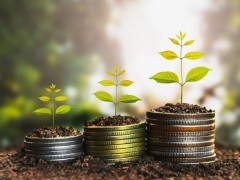Berita

More timely use for funds
Tarikh : 02 April 2019
Dilaporkan Oleh : Roslan Bin Rusly
Kategori : News
Tweet This
THE historic outcome of the 14th General Election reflected the rise of the Malaysian people who were fed up with kleptocracy and mismanagement of the country and its funds. However, with the hope of a better future came the monumental task of managing the country's debts, which were revealed to be in excess of RM1 trillion.
Upon hearing this news, and with the spirit of new Malaysia burning within, many individuals and organisations expressed their desire to help ease the government's financial burden through a fundraising campaign.
Thus, Tabung Harapan Malaysia (THM) was established to function as the collection point for their contributions. Generous Malaysians contributed more than RM200mil to the fund, which stopped accepting further donations in January this year.
Recently, the Finance Minister announced that THM is currently being audited by the auditor-general, and the Accounts Committee chaired by the Treasury secretary-general would decide on how to use the funds.
During its inception, it was implied that the funds collected by THM were to be used to help repay government debt.Although this comes with the best of intentions, it may not be the best course of action and outcome.
Instead, the funds should be turned into a trust endowment that could focus on funding socially beneficial programmes for the low income B40 group. Recent reports by Khazanah Research and the World Bank show that income inequality between the T20 and B40 in this country has worsened, with an average B40 household only having RM76 monthly to spare after household expenses are deducted.
There are many challenges facing the B40, and these are further compounded by the increase in cost of living. "Band Aid" solutions such as cash transfers and subsidies can no longer be relied upon to help these vulnerable people.
There must be longer-term solutions, one of which could be the establishment of a trust foundation funded by money from Tabung Harapan. Under this trust foundation, which could be managed by an experienced and professional organisation, the RM200mil collected could be invested and the returns be used to fund socially beneficial programmes for the B40.
Let's take a conservative figure of 5% returns on investment from the RM200mil. This amounts to RMlOmil per year, of which RM8mil could be used to fund the programmes while the remaining could be put back into the fund for compounded returns.
This may seem like a measly sum compared to the RM200mil that can be immediately spent, but it would be more sustainable in the long run. It would also ensure that the operation of the foundation is self-sustaining and allow continuous benefits to future generations Instead of handouts, the funds should be used for conducting training programmes and providing soft loans to assist entrepreneurs.
The foundation could work with existing government agencies and social NGOs to enhance programmes that are found to be successful. The impact of the programmes must be measured, tracked and published for further improvements. There are many best practices that can be referred to, such as social impact bonds (SIB), around the world.
SIB programmes range from workforce development and housing for the homeless to child and family welfare, early childhood education and poverty eradication. SIBs have shown significant evidence of success and can be emulated to address issues of concern among the B40 in Malaysia.
This proposed trust foundation would be similar to a cash waqf structure but with fewer restrictions and legal issues crossing state boundaries. Waqf, which translates to endowment, is a long-standing Islamic tradition. It refers to the dedication of valuable assets land, buildings and even money such that they no longer belong to anybody and cannot be bought or sold. Rather, the assets are to be held in trust and the profits generated from them are used for charitable purposes.
With the establishment of a foundation managing the endowment fund for the B40, the THM account could be reopened indefinitely for further donations and grants that can contribute towards its capital. Companies and organisations could contribute to this fund through their yearly corporate social responsibility (CSR) grants and individuals could get tax rebates for their contributions.
To ensure accountability, quarterly reporting of the foundation's activities must be prepared and made public. The government could assign prominent NGO leaders as trustees and appoint independent, credible and professional people to run the foundation. This proposal may seem idealistic but it can be realised with political will.
As they say, if there is a will, there is a way. Hopefully, the Finance Ministry would consider this proposal. Penuhi harapan, bina negara (fulfil expectations, develop the nation)
SYED MARWAN
Assistant professor IIUM
Institute of Islamic Banking and Finance Kuala Lumpur








